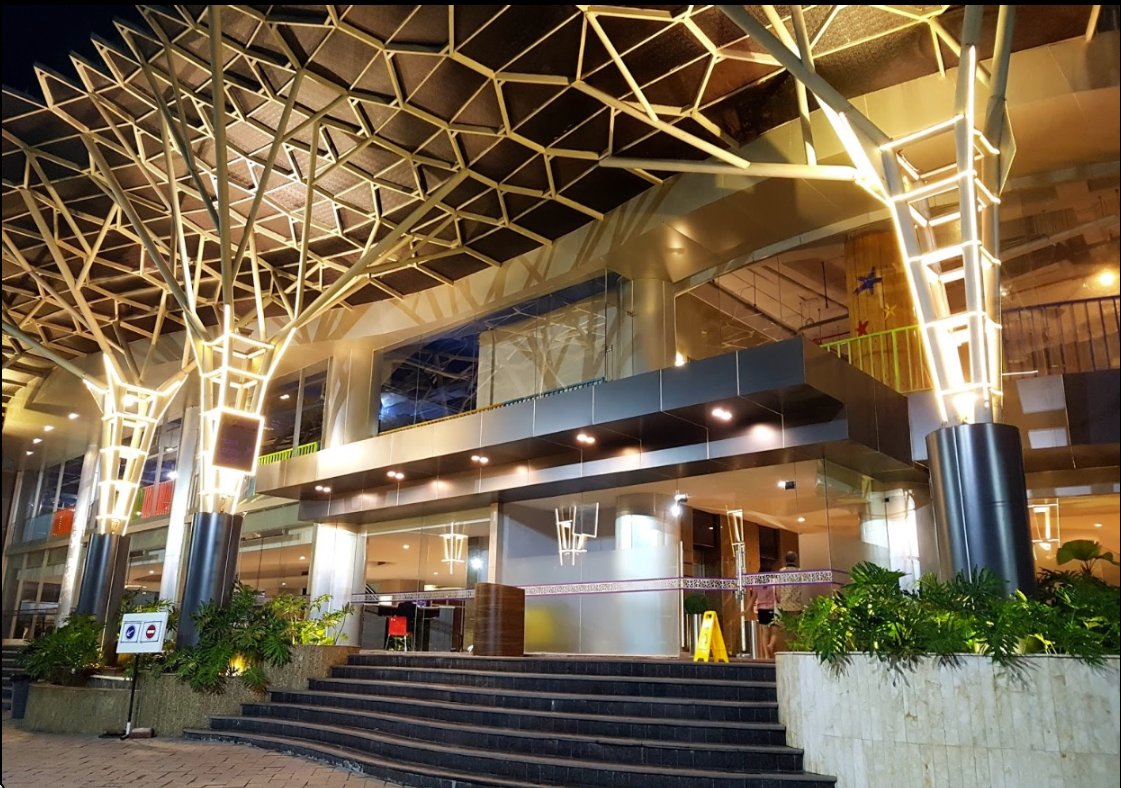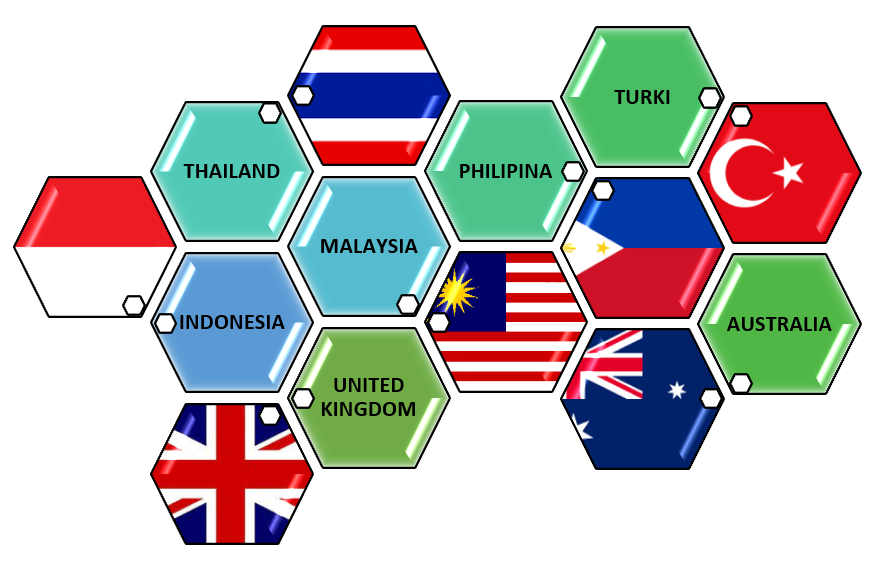About The Event
The Ministry of Religious Affairs of the Republic of Indonesia is responsible for benefitting and sustaining the environment for the realization of peace, prosperity, and equality of religious communities in Indonesia and the world. To realize this responsibility, systematic and comprehensive thinking is needed from scholars, practitioners, and religious leaders through the International Conference on Religion and Environment with the theme Interfaith Voices for Environment: The Role of Religion for a Sustainable as a vehicle to discuss the roles and responsibilities of religious communities in realizing a sustainable environment.
The Religion and Environment Conference seeks to explore the deep connections between religious traditions and nature, examining how spiritual teachings, ethical frameworks, and faith communities can contribute to protecting and preserving our planet. As global environmental crises such as climate change, biodiversity loss, and pollution escalate, more and more people recognize the need for collaborative efforts to address these challenges. Religion's deep roots in morality, community, and stewardship are vital in shaping individual behavior and collective action for a sustainable future.
The conference aims to unite religious leaders, scholars, environmental activists, policymakers, and community organizers to engage in thoughtful dialogue, share innovative practices, and build partnerships that bridge faith and environmental advocacy. Through keynote speeches, panel discussions, workshops, and collaborative sessions, we will explore ways faith traditions can inspire environmental responsibility, ethical action, and social justice.
In fostering dialog and collaboration, the conference aims to cultivate a sense of shared responsibility and inspire faith-based leadership to care for and protect the earth for future generations. The time for action is now, and through the collective wisdom and faith-based action of this gathering, we hope to contribute to a movement that transcends religious boundaries, uniting all people in the sacred duty to care for our planet.
This spirit of embodying religious values and studies related to the environment ultimately requires academics, practitioners, and religious leaders to dare to open themselves in an honest, open, and objective academic dialog. The distinctive things at this Conference will be the Religious Leaders' Summit, Film Screening, and the Charter of Religious Leaders Caring for the Environment signing. .
Goals and Objectives
The purpose of this International Conference is as a gathering place, dissemination and discussion of scholars, lecturers, researchers and religious leaders both at home and abroad who discuss the main themes and sub-themes that have been determined and packaged in the form of various activities of international standard.
The objectives of the International Conference on Religion and the Environment are
Exploration of Theological Aspects of Environmental Ethics
To examine and discuss major theological perspectives on nature, creation care, and human responsibility towards the earth, drawn from various religious traditions such as Christianity, Islam, Hinduism, Buddhism, Indigenous Spirituality, and others
Addressing Environmental Justice Issues from a Religious Perspective
To explore how religions can address the disproportionate impact of environmental degradation on marginalized communities, advocating for environmental justice through faith-based activism
Sharing Case Studies of Successful Religious Environmental Initiatives
Presents real-life examples of faith communities and religious organizations engaging in successful environmental projects, sustainability practices, and climate advocacy, and discusses how these initiatives can be scaled up or replicated
Building Partnerships for Collaborative Action
Develop networks among religious organizations, environmental groups, government agencies, and interfaith networks, encouraging cooperation on environmental policy, community action, and sustainability projects
Integrating Climate Change and Sustainability into Religious Education
Seek ways to integrate environmental teachings into religious education and spiritual practices, to help future generations understand the importance of environmental stewardship from an early age
Advocating for Faith-Based Policy Change
Develop strategies to engage faith communities in advocating for policies that address climate change, protect biodiversity and ensure sustainable development at local, national and global levels
Create a Global Declaration or Action Plan
Pursue the creation of a formal declaration or action plan outlining faith communities' commitments to environmental stewardship, sustainability, and climate action, providing a clear path for collective religious action
The International Conference on Religion and the Environment aims to catalyze global cooperation, fostering a movement where faith and the environment are seen as inseparable and where religious values can help guide humanity towards a more sustainable and equitable future. Through dialog, action and commitment, the conference aims to empower faith communities to contribute meaningfully to the protection of the earth and the well-being of all its inhabitants
Output
The outputs of the activities are as follows
Formulation of thoughts on the role of religion in environmental crises that are in harmony with universal humanitarian principles and values
Recommendations on the formulation of the implementation of the role of religion for environmental issues
Stakeholder
Ministry of Religious Affairs (Kementerian Agama Republik Indonesia)
Universitas Islam Negeri (UIN) Walisongo
Event Speakers
Here are some of our speakers

Dr. Kadek Aria Prima Dewi
Universitas Hindu Negeri I Gusti Bagus Sugriwa Denpasar

Dr. Phil Dewi Candraningrum
Universitas Muhammadiyah Surakarta

Dr. Suhadi Cholil
UNU Yogyakarta

Farid F. Saenong, PhD
Universitas Islam Internasional Indonesia & Masjid Istiqlal

Haryani Saptaningtyas, PhD
Percik, The Institute for Social Research, Democracy and Social Justice, Salatiga

Hening Purwati Parlan
Greenfaith

Jonathan D. Smith, PhD
University of Leeds, UK

Kustiani, PhD
STAB Syailendra

Mohammad Hasan Basri, PhD
UNUSIA Jakarta

Prof. Dr. Abdul Kadir Riyadi
UIN Sunan Ampel Surabaya

Prof. Dr. Abu Rokhmad
Dirjen Pendis Kemenag RI

Prof. Dr. Ahmad Zainul Hamdi
Director of Islamic Higher Education, Ministry of Religious Affairs

Prof. Dr. Budi Widianarko
Soegijapranata Catholic University

Prof. Dr. Frans Wijsen
Radboud University Nijmegen The Netherlands

Prof. Dr. Muhammad Ali Ramdhani
Sekjen Kementrian Agamaa

Romo Dr. Aloysius Budi Purnomo
Keuskupan Agung Semarang
Sub-Theme
Religion and Sustainability: Religious Teaching for a Greener Future
This theme could focus on how religious traditions can provide ethical guidance and spiritual motivation to adopt sustainable lifestyles and protect the environment
The Sacred Earth: Reconnecting Spirituality with Nature
This theme will explore how spiritual practices, rituals, and sacred texts can foster a deeper connection with the Earth and promote environmental awareness
Creation Care: Interfaith Approaches to Protecting the Planet
Focusing on the theological concept of “creation care”, this theme could encourage interfaith dialogue on shared environmental values and actions that different faith communities can take together
Climate Change: A Moral and Religious Imperative
Focusing on the urgency of climate action, this theme could focus on how religious traditions address the moral responsibility to combat climate change, reduce carbon emissions, and advocate for policy change
Eco-Spirituality: Bridging the Gap Between Religion and Environmental Crisis
Exploring the concept of eco-spirituality, this theme can bring together different approaches to spirituality that emphasize environmental awareness and action
Event Schedule
Here is our event schedule
Registration and handling accommodation
Plenary I
Religion and Sustainability: Religious Teaching for a Greener Future
Plenary Session :
- Prof. Dr. Muhammad Ali Ramdani, ST., MT. (SekjenKemenag RI)
- Prof. Dr. Frans Wijsen (Radboud Unicersity, the Netherlands)
- Rev. Prof. Sunshine Dulnuan (St. Andrew Theological Seminary, Manila) *
- Jonathan D. Smith, PhD (University of Leeds, UK)
- Farid F. Saenong, PhD (Indonesian International Islamic University/Masjid Istiqlal)
OPENING CEREMONY
- Indonesia National Anthem
- Opening
- Reciting Holy Qur’an
- Praying
- Introduction to Conference by Rector UIN Walisongo
- Welcome speech by the Governor of Jateng
- Opening and keynote speech by the Minister of MORA
- Closing
Plenary II
The Sacred Earth: Reconnecting Religion and Spirituality with Nature
Plenary Session :
- Prof. Dr. Michael Northcott (University of Edinburgh,Scotland) *
- Prof. Dr. Abdul Kadir Riyadi (UIN Sunan Ampel Surabaya)
- Kustiani, PhD (STAB Syailendra)
- Dr. Kadek Aria Prima Dewi (UHN I Gusti Bagus Sugriwa, Denpasar)
- Hening Parlan (PP. Aisyiyah & GreenFaith)
Plenary III
Creation Care: Interfaith Best Practices to Protecting the Planet
Plenary Session :
- Prof. Dr. M. Mukhsin Jamil (UIN Walisongo, Semarang)
- Dr. Phil Dewi Candraningrum (Universitas Muhammadiyah Surakarta)
- Rev. Jimmy Sormin, MA (PGI)
- Dr. Haryani Saptaningtyas (UNS & Percik)
- Hasan Basri, PhD (UNUSIA, Jakarta)
Parallel Session
- Panel 1
- Panel 2
- Panel 3
- Panel 4
Focus Group Discussion on Higher Education and Environment
- Prof. Dr. Ahmad Zainul Hamdi (Direktur PTKI Kemenag)
- Prof. Budi Widianarko (Unika Soegijapranata)
- Dr. Suhadi Cholil (UNU Yogyakarta)
- Rektor/ Perwakilan PTKIN/PTKI


